Lost in translation

WHAT LIES IN THE BACKGROUND
In a beginning was the word, not sure which one but according a certain holy scripture, in the moment of separation of space and form it is noted that something uttered words in order to light shed some light on the situation. Probably so that the void could be distinguished from the tangible. Words have a curious quality to them, seeing that their function is to be a representation or a symbol for something else. The word “book” for instance isn’t a book in itself but merely a reference to an object that has certain qualities and characteristics that we, by learning language, associate with the symbol or in this particular case the word. So in themselves words are nothing but abstract concoctions that we collectively agree has particular meaning. Most often they are used to describe something, to label and confine one thing to be separate and other from something else.
This manner of communication comes with some interesting limitations. First of all, if we want to make ourselves clear, that is to be as precise in our description of something as possible it favours us to have access to a refined enough vocabulary so that our sentences can render a high enough resolution to really represent the nuances in what we wish to express. Secondly, if we assume that the communication is some form of dialogue we have to ensure that whoever we are communicating with has the same frame of reference and receives the meaning of our abstractions with same value as we have given them. Of course this is also flavoured by how something in expressed both in tone and body language if the words are spoken, but let’s leave that complexity aside for the moment. In the end, our narrative is dependent on and directly affected by what words we choose to describe our experience with. This makes the meaning, the value and the richness of our vocabulary potent, if not crucial, factors when it comes to the perceived quality of our reality. In a way, if we have a limited vocabulary we also have a very limited narrative which could lead to the perception of feeling stuck or out of options. We may also have an experience where we truly feel lost for words to describe it. Note though that the experience always remains unchanged regardless of our description of it. Isn’t then it curious how much we feel like we are depending on being able to narrate, comment, describe and label that which we experience?
Different cultures have developed different ways to go about the rendering process, while some focus on the pixels and innovate separate words for minute aspects so as to be able to render as an exact representation that avoids any misunderstanding of details. Sort of blueprinting the description so it could be put together again into an exact replica. I’m not an expert in linguistics or etymology but for some reason the German language comes to mind as they seem to have a thicker dictionary than many other languages. While other cultures are more into the phenomenological concept, sort of bunching together a whole experience or phenomena into one word. Japanese, of which I speak none, seems to have these sort of concoctions for things like “the specific way light filters through the leaves of trees” (komorebi) or other contextually depending words that are used in a lot of traditional haiku. English being quite a simple and unflavoured language leaving a lot open for interpretation.
And yet regardless of what language is being used or how grand of an effort is made to weave the words together, there will always be a gap through which parts of that which we set out to portray escapes. All words must end at some point and leave space for the next one and it is in that space that truth is distorted into myth. The experience we have and our verbal representation of it, the narrative we chose to dress it in, will never perfectly match and we will undoubtedly fill in the gaps with something other than words. The abstract remains framed by its own definition just like the photograph can never show the whole picture but if we were there the photo may well ignite a sensory imagination that adds colour, depth and range.
So what is it then that slips through the cracks and fragments experience into an idea?
Is there something to stop it from falling to pieces and are there ways bridge the gap
WouldithelpifIkeptitalltogethersothatlesswasabletoescapemymind?
Alas, also words are made of letters and as nature has is they too divide
I believe the opposite is more potent, to let experience run its course
since adding captions to all that happens spurs confusion and distorts
Perhaps this is why the wisest of poets drank his ink and never spoke
That which is will rest in the background and won’t be revealed by words on their own,
many have tried,
yet none has succeeded
the void can’t be captured
unless left alone
However, as clumsy and abstract the means of words may be some people do have a way with them, an ability to bridge the gaps and express themselves with such eloquent mastery that the meaning really rings true and resonates within us. Like a radio broadcast in full colour. May it be a poet, a teacher, preacher, politician (unlikely) or perhaps even a friend or parent who in a moment of clarity, knowingly or unintentionally, transmits a deeper understanding that ignites our insight. As this happens it is very possible that we begin to see this person as a source of wisdom, which may be true at the moment but comes with the risk of us mistaking the person as wisdom which is a path to blind trust or faith if we forget that they are nothing but the transmitter. In the terms of the radio waves they would actually be the radio, delivering the signals that ultimately are from a broadcast somewhere else. This person may be tuned in perfectly but it is required of us as the receiver to be switched on so that we are not mislead by the appearance and remind ourselves that it is actually the words that are really what is creating the profound effect on us. If they make sense and they awake something, if they trigger us it is also not uncommon that we begin to repeat what we have heard, to ourselves and possibly preach it to others.
Like we would with a favourite song, play it again and again and the more we do the more we create a personal bond and attachment to it. It begins to mean something to us personally. Now, this in itself doesn’t dilute the message or the power of what has been said, however if we don’t remind ourselves of the abstract nature of words the message may be thought to lie in the meaning we attribute to them. Actually even if we were to dissect the words and strip them of our subjective projections and look at them one by one in their naked definitive state, we would soon realise that there is something missing, that the magic they carried is not part of the word itself. All that happens is that we intellectually understand how the transmission or broadcast is produced, the message is not in the words but lies in our deep memory that triggers as they are strung together and delivered in a certain way. We’re all conditioned differently at the moment so it isn’t so strange that what resonates with one may fall upon deaf ears for another.
Just to elaborate quickly, the meaning of a word is a construct of the mind, when the mind begins to make sense of anything it requires labelling and that implies some form of separation. While the sensational experience, that which is actual source for us even feeling the need to describe something, can’t make that kind of separation, or rather it just doesn’t, it just is, no borders, no outline, non figurative. So by that logic if we are trying to “figure something out” by dividing it up into smaller pieces we are actually heading in the wrong direction, since that which is isn’t divided, it’s the whole.
Having said this, critical thinking is still a powerful tool for anyone aspiring to break through the illusion that we create for ourselves and a necessary conduct to maintain while paving the way to deeper insight, which ultimately doesn’t come from the story but rather is the experience in itself that may or may not become a story to be told. So to end on a pun: never take anyone’s word for it, note even these, not even your own, but rather to rely on empirical sensation.
Btw, I am fully aware of the irony in using words to dismiss their importance.



Sorry, the comment form is closed at this time.